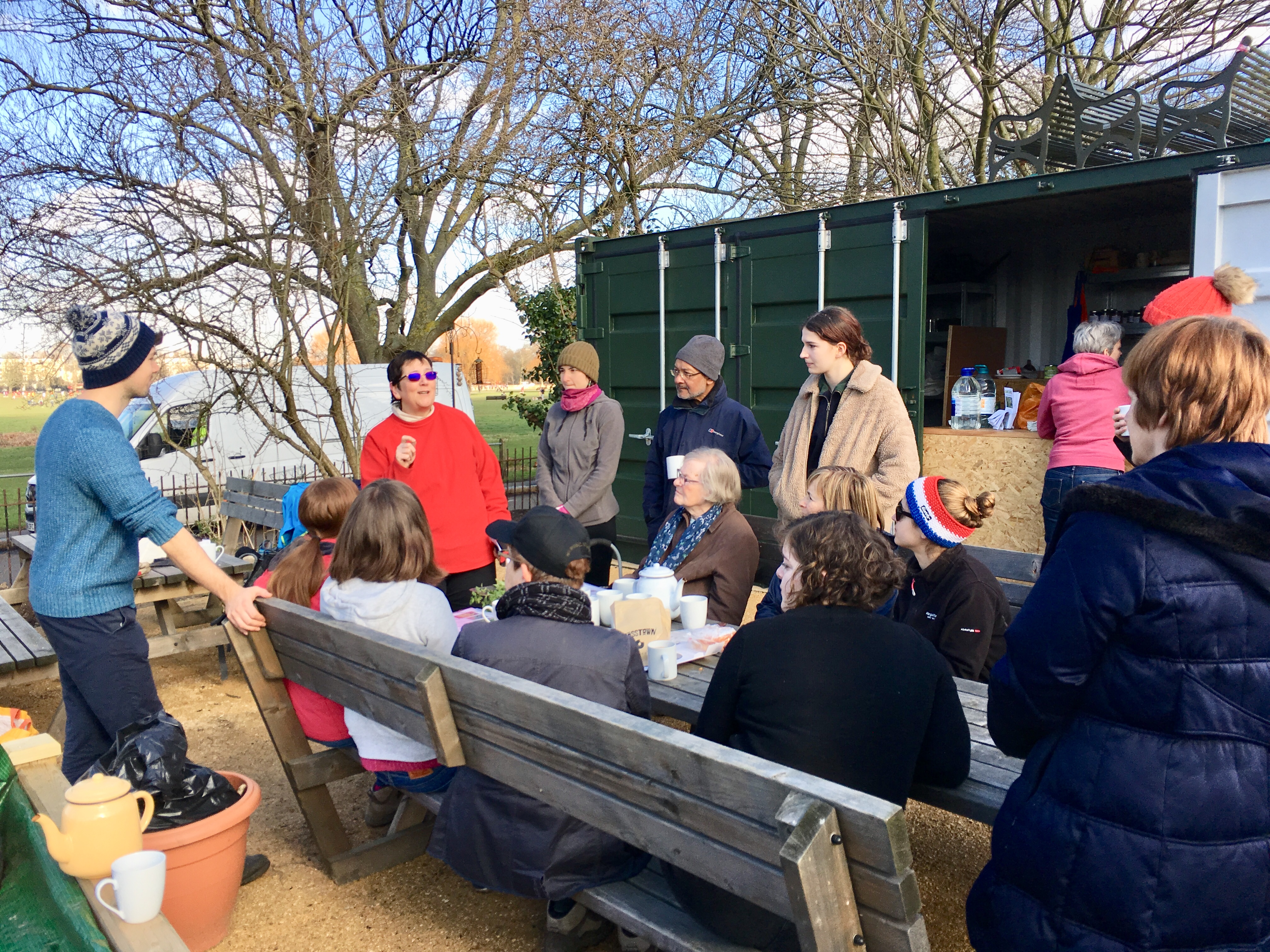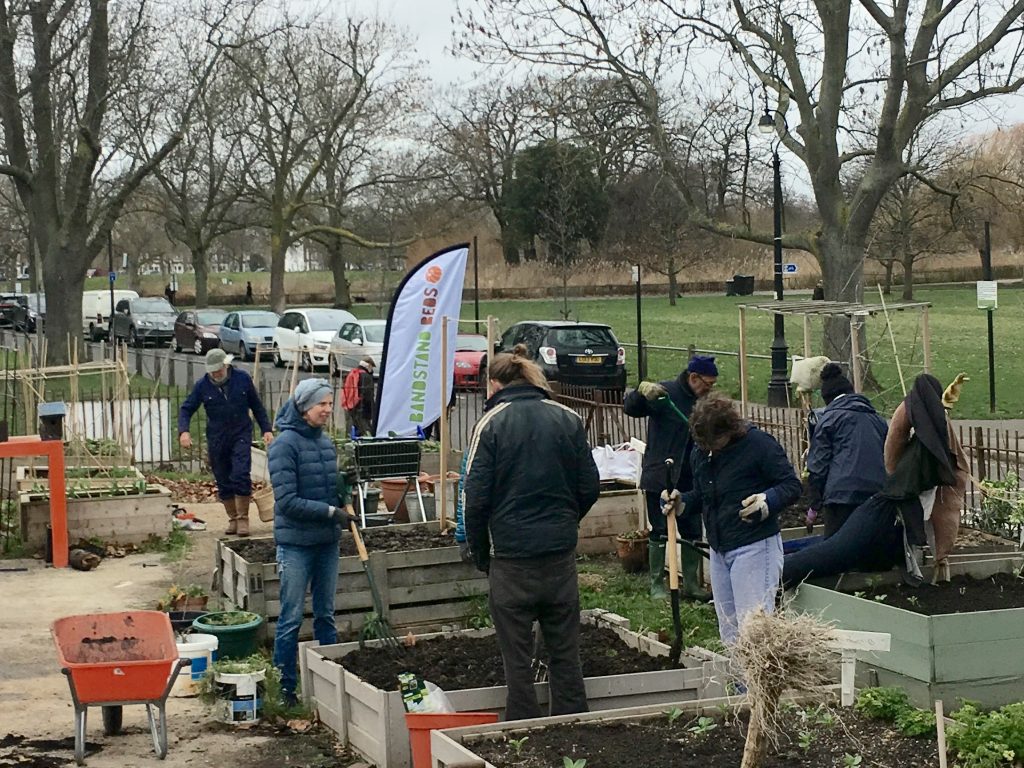It’s been a long, cold old winter but it hasn’t stopped our intrepid team getting out in our garden and getting ready for the growing season ahead.
From mid-January onwards we’ve been tidying, pruning and planting raspberries and redcurrants in our Fruit Beds over by the children’s playground. Adding some gardeners’ gold (manure) from Vauxhall City Farm to help boost our crop yield.
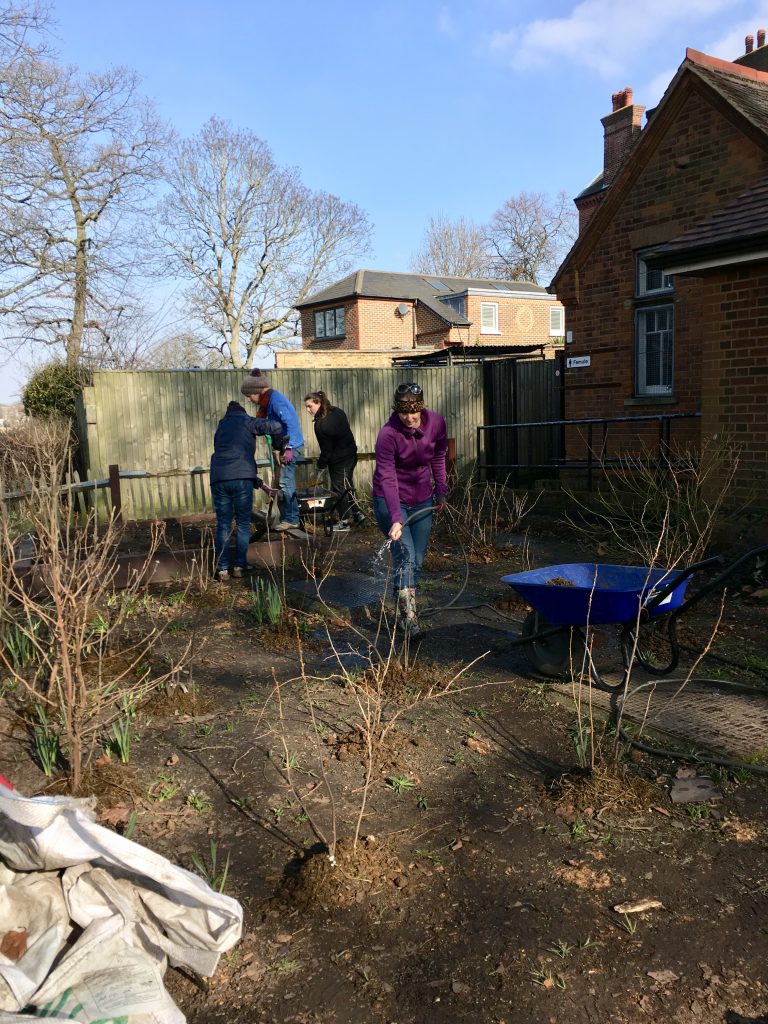
We kicked off February with the first of our monthly gardening workshops with community grower Ruth Arnott, where people chitted potatoes to plant in bags in March and sowed microgreens to nurture at home. For more information on future gardening workshops follow this link.
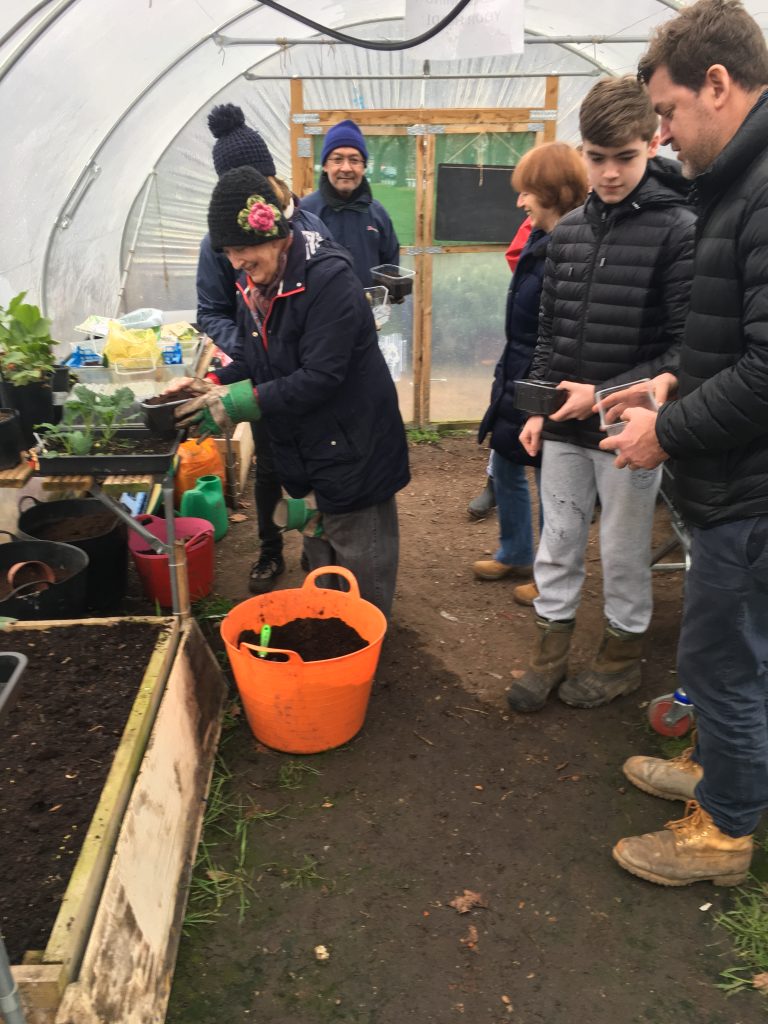
Luckily, we’ve had a couple of sunny Saturdays when it really felt like spring, prompting us to hang up some bird boxes and a feeder. So far, we’ve seen great, blue and long tailed tits, dunnocks, a very friendly robin – and parakeets!
We’re also seeing some growth in the garden. Our spring bulbs are up and, of course, weeds are appearing. Something to talk about over tea.
Diana gave a talk about weeds, with the emphasis on the fact that weed seeds are in the soils and only need warmth and light to germinate. Annual weeds grow fast, set seeds and spread. Perennial weeds have tough roots and will grow again unless completely removed. They are native species and therefore tougher than our vegetable crops, especially when crops are at seedling stage weeds are real competitors for light and food.
Identifying weeds was important. We had examples of common weeds found at the garden, and a handout showing some of the most common weeds to be found. If at all possible weeds should not be allowed to set seed. Weed plants with flowers or seedheads should not go into domestic compost bins, and perennial weed roots should also be taken off before going into the compost bins. This is because domestic compost heaps rarely get hot enough to kill weed seeds. Drying and burning, or putting into commercial compost schemes is preferable. The earlier you can identify and remove weeds the better – we harvested salad and took time to identify weed interlopers and remove them.
As always, we round the morning off by sharing produce from the garden. Our newly acquired weed knowledge came I very useful when picking the salad in the polytunnel.
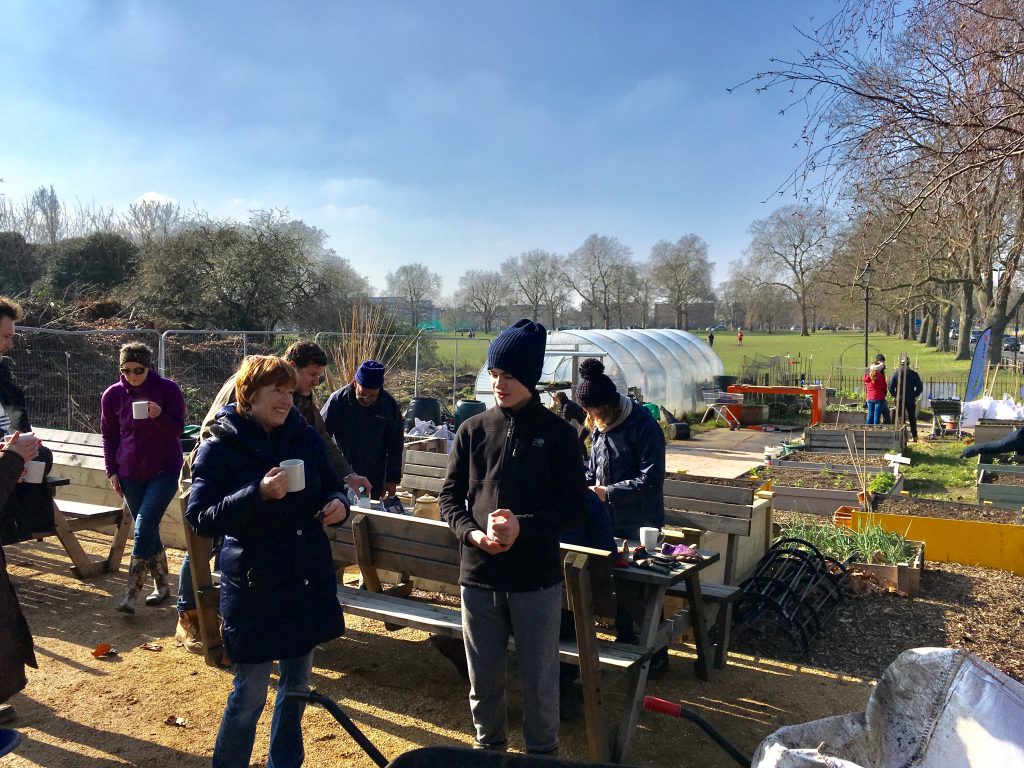
We are in our garden on Windmill Drive ever Saturday from 10am to 1pm with tea and cake at around 11.30pm, and on the first weekend of the month we have a laidback lunch and stay open until 3pm. And from April we will also running a weekly gardening club for over-55s.
Want to get outdoors and get growing? Then come and join us!

